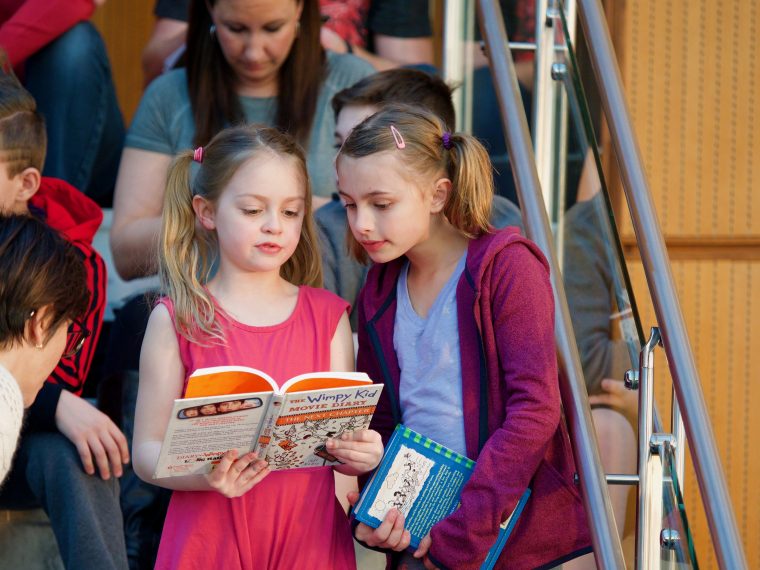Planned giving to the library: 5 best questions to ask
Posted on June 28, 2018

Financial donations are made to charities all the time. But have you ever wondered how you can make giving part of your legacy? Your financial or legal advisor can help. Four members of the Library Foundation’s Planned Giving Advisory Committee shared the best questions to think about for your giving.
Should I give now or later?
“I like to remind people of the benefits of giving while they are still living,” said Peter Donahoe, an attorney with Donahoe Irvin PC. “The point is that a great deal of satisfaction and enjoyment can come from seeing the good the gift does.” Donahoe notes that many people worry about their own financial security and don’t want to threaten that by a gift during life that is too big. That’s when to consult your advisors, he said. “A potential donor may find they can afford to make a larger lifetime gift. They may be able to watch as the mission they support so much is furthered and advanced by their gift.”
One other thing on the giving while living – you get the income tax deduction while living and you, in effect, get an estate tax deduction as the property is removed from the estate “If you give just at death, you only get the estate tax deduction. And, of course, the estate tax applies to so few that for most it is no tax benefit at all,” Donahoe said.
How will my donation contribute to a larger mission?
Giving, said David Forbes, Senior Vice President for First Merchants Private Wealth Advisors, usually speaks to a deeper goal than just wanting to help one organization.
“There is usually some aspect of what they feel that a specific charity is or does, that moves their heart,” Forbes said.
“For example, a person that cares about helping children, especially at-risk children, has lots of charitable options,” Forbes continued. “Reading and literacy to at-risk children can help them graduate with a good education, which expands their career options and often can change their whole lives. A gift to the library meets their goal of helping children. If their interest is reducing poverty, seeing how an adult literacy program gives people greater employment options could make the library part of their charitable plan.”
A single donation can have an impact today and for generations to come. “The library isn’t just a place to get a book, but is actually a place that improves people’s lives and makes the community a better place to live in a multitude of ways,” Forbes said.
It helps to focus on the big picture. “The client is devoting their resources, away from family, to this cause,” Donahoe added. “The cause should be important to them, and by example, to their family and those other people who would be influenced by the client, such as co-workers, business associates, friends, church, and other acquaintances.”
How do I determine how much I can afford to give?
Keep an open mind. You may be able to do more than you think.
Mary Stanley, the Director of Gift Planning and Legal Affairs for the Central Indiana Community Foundation said every donor should think about “moving up” a gift. “Although everyone’s financial situation is unique, at least one important consideration a person should address with his or her professional advisors is whether that person’s financial situation might actually allow them to ‘move up’ that gift to a lifetime gift. Certain lifetime gifts could result in substantial income and capital gains tax savings to the donor,” Stanley said.
Should I designate how the donation can be used?
Designating a gift means you set the terms for how an organization can spend the gift, versus letting the organization use it where it is most needed. Both types of giving are important and it’s important to talk to the organization about how you might want to restrict a gift.
“Once a person has decided to make a gift to an organization, they may want to consider if they will designate its use and if so, how,” said Ryan L. Leitch, an attorney with Riley Bennett Egloff LLP. “This is important because it allows the person to balance what they wish to do for an organization or cause about which they care, with how it might be most beneficial to the organization.”
How can I be certain the donation is used as intended?
Putting it in writing and talking to your family about why a gift matters to you is really important.
“People need to be really clear in their documents about what they want to go to charity,” Donahoe said. “Sometimes, the family heirs are not so happy about the large gift to charity and may look for ways to challenge them in court. The clearer the documents and the intent of the deceased, the better the chance a charitable gift will hold up.”
You can read more about making a planned gift to the Library Foundation here.
